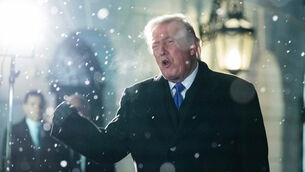'Hamas will not yield to international economic pressure'
A senior Hamas official today brushed aside warnings that Western aid to the Palestinians could dry up because of the militants’ hardline stand on Israel, saying the Islamic group would not bow to international pressure.
“Cutting off funds now will be a punishment of the Palestinian people, not of Hamas,” said Mohammed Nazzal, member of Hamas’ decision-making political bureau, which is based in Damascus, Syria.














